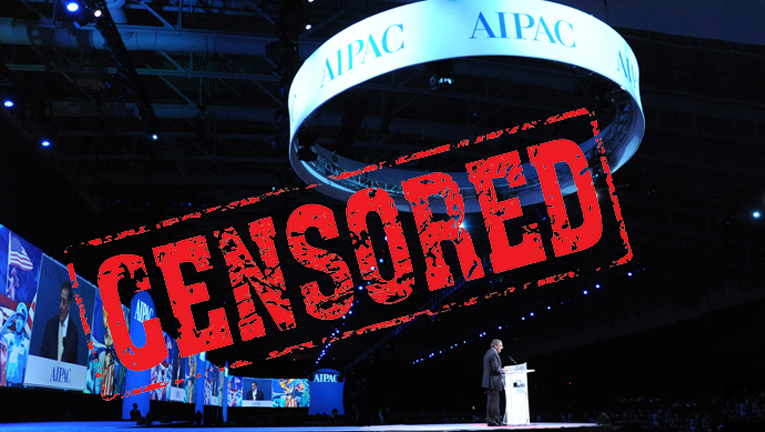by Jim Lobe
In my 30 years as the Washington DC bureau chief for Inter Press Service, only one institution has denied me admission to their press or public events. That was the American Enterprise Institute (AEI) shortly after the broadcast in 2003 of a BBC Panorama program (its equivalent, more or less, of our “60 Minutes”) on neoconservatives and their promotion of the Iraq war. The segment was entitled “The War Party” and I was interviewed at several intervals during the program. In that case, I was told forthrightly (and somewhat apologetically) by the think tank’s then-communications chief, Veronique Rodman, that “someone from above” had objected strongly to the show (I had my own reservations about it) and my role in it and had demanded that I be banned from attending future AEI events. My status as persona non grata there was reaffirmed about five years later when LobeLog alumnus Eli Clifton went there for an event and was taken aside by an unidentified staffer and told that he could attend, but that he should remind me that I was still unwelcome.
Now it seems I’ve been blackballed by the American Israel Public Affairs Committee, although, unlike AEI, AIPAC has so far declined to give me a reason for denying me accreditation for its annual policy conference, which runs Sunday through Tuesday. All I’ve received thus far is this email that arrived in my inbox Thursday morning from someone named Emily Helpern from Scott Circle, a public relations firm here in DC.
Thank you for your interest in attending this year’s AIPAC Policy Conference as a member of the press. However, press credentials for the conference will not be issued to you. We regret any inconvenience this may have caused.
I emailed Emily back as soon as I received it to ask for an explanation and pointed out that this is the first time in a decade that I’ve been denied credentials to cover the AIPAC conference. When no reply was forthcoming, I sent a second email to her and to Marshall Wittmann, AIPAC’s communications director, seeking an explanation, but, alas, it seems I’ve become a non-person.
Now, it bears mentioning that I am not the first to be blackballed by AIPAC, apparently for political reasons. As the JTA’s Ron Kampeas reported in 2012, three journalists were denied credentials to the policy conference that year:
Journalists turned away include Mitchell Plitnick, a liberal blogger who has sparred with right-wing pro-Israel groups as well as anti-Zionists, and who was going to provide coverage for Inter Press Service, which emphasizes developing nations coverage as well as what it calls marginalized groups; Adele Stan of AlterNet, a news site that says it encourages advocacy in a number of areas, including human rights and social justice; and Philip Weiss of Mondoweiss, an anti-Zionist site.
Plitnick had been cleared for coverage, only to be told that it was rescinded, and Weiss has covered AIPAC policy conferences at least three times without incident.
Barring coverage in Washington is rare; Government institutions in Washington are known for accommodating a broad range of journalists, including those adamantly hostile to the government of the day.
Actually, at least four journalists were barred from the 2012 conference. Alex Kane, who writes for both Mondoweiss and Alternet, was also denied credentials. Mitchell’s exclusion was particularly bizarre, given the sudden turnabout and the fact that he is a “non-Zionist” — as opposed to an “anti-Zionist” like Phil (who was barred again this year) — who also believes there should be a state where Jews should be able to gain refuge in the event that they ever face a threat like Nazism again. Of course, his past associations with the Israeli human rights group B’Tselem and with Jewish Voices for Peace (JVP) may have been too much for AIPAC to bear. I have no such organizational affiliations and probably fall somewhere along the spectrum between Mitchell’s idea (my parents were German Jewish refugees) and liberal Zionism to the diminishing extent that it remains a realistically viable option.
Now, however, it seems I’ve been added to AIPAC’s blacklist.
This raises a lot of questions, not the least of which is how thin has AIPAC’s skin become in light of its recent defeats on Capitol Hill. Another is whether it’s also barring its right-wing critics like Adam Kredo who, like me, has written a lot recently about the group’s travails in trying to maintain its bipartisanship while also doing the bidding of Bibi Netanyahu and his Republican and neoconservative allies here. But, of course, AIPAC’s right-wing critics, like Sheldon Adelson and Bill Kristol, have serious money — or access to it — while people like Mitchell, Phil and me don’t have quite as much to offer (although this letter is an encouraging development).
While I am under no illusions about my very marginal impact on the fate of the Israel lobby’s premier institution, I do think the fact that AIPAC would actually take the trouble to exclude me from its conference this year testifies — at least a tiny bit — to the organization’s current weakness, or, more precisely, its loss of self-confidence. Aside from AEI, I’ve never been excluded from any organization, no matter how politically or otherwise obnoxious it was to me or I to it. I have attended briefings and events by the the Jewish Institute for National Security Affairs, the Hudson Institute, and the Foundation for the Defense of Democracies, for example, and have always been treated with civility, if not cordiality. It’s hard to believe that AIPAC, which is far bigger and more powerful than any of these others alone or in combination, would think that my presence at a conference attended by 14,000 devoted followers might pose some kind of threat to — or, constitute an unacceptable blight on — its proceedings.
Meanwhile, read John Judis’s excellent analysis of the historical roots of AIPAC’s current plight. Maybe now that he’s published a revisionist history of Harry Truman and Israel AND critically assessed AIPAC’s problems, he’ll be blackballed, too. I’ll have to ask him.






Is the loss to the journalists so very great? No doubt, 13,000 vicarious warriors of an imaginary Israel Defense Force will make their usual appearances at Congressional offices—but they will be saying what they have been saying for years if not decades, the difference being that the patience of American Gentiles with their increasingly evident tribalism is wearing thin…..nothing prevents the barred journalists from listening in on those Congressional visits, or interviewing the Congresspersons afterwards…..as for the AIPAC officials making these decisions, one sympathises: should the entire structure crumble as America’s non Jewish majority decides it has had enough of dual loyalties, they will have to find other vocations. Some of them are quite decent and talented, and a healthy dose of trauma might serve them well in the long run. One doubts that many of them, or of the 13,000, will move to Israel….Norman Birnbaum.
You have to wonder if AIPAC is a bit cheesed off at the Saudis.
If the US congress had a Facebook Page their status has always been listed as “in a relationship with AIPAC.” But lately that status is mysteriously being listed as just “in a relationship.”
Could be just a technical glitch, but The Saudis have have been throwing so much money around AIPAC must be wondering if the congress has found a new “boyfriend.”
This gabfest could be an attempt to woo back the US congress into the AIPAC fold. Bibi reminding them not too be taken in by “big spenders with flashy cars” and that there are more important things in life like “loyalty, family and history.”
On the surface Israel and Saudi Arabia may have similar goals in Syria. But you have to wonder if Bibi’s really that thrilled with having a hardcore Islamic state on his doorstep.
All in all it’s a very delicate matter. So APAC has to be extra careful which reporters it lets in.
I love this Jim.
concerning this: (I had my own reservations about it), I wonder if you tell us that too one day.
But interesting to go back in time. I’ll check it later the offered BBC journey back in time.
J’espère que tu vas bien, et Danny aussi. ;)
Yes, “including those of America’s Jews”.
Thanks, Rael. Someone should commission a medal or badge, to honour those journalists barred by Aipac.